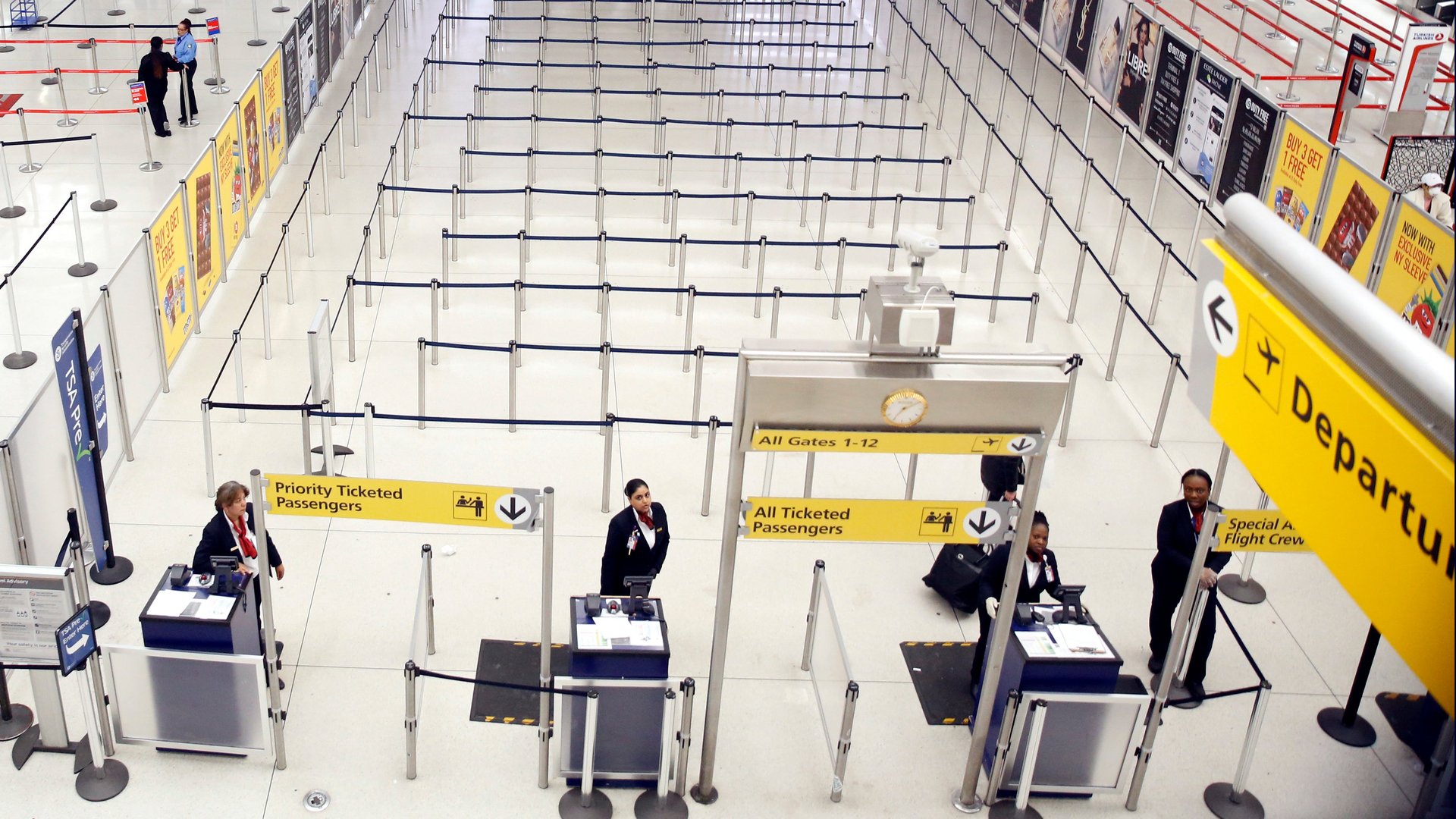Coronavirus bailouts should prioritize workers over shareholders
The US has opened its financial crisis playbook. Federal Reserve rate cuts? Check. Easy access to credit facilities? Check. Fiscal stimulus? It is, let’s hope, on the way.


The US has opened its financial crisis playbook. Federal Reserve rate cuts? Check. Easy access to credit facilities? Check. Fiscal stimulus? It is, let’s hope, on the way.
Bailing out hard-hit industries? Well, let’s run that one back.
Airlines are in deep trouble as global transportation grinds to a halt in an effort to slow the spread of SARS-CoV-2, the coronavirus that causes Covid-19. Other industries, including the hotel industry as well as restaurants and bars, face nearly existential crises from social distancing measures. How and when should the government rescue them?
“We should take the lesson from what we should have done in the banking crisis,” says Adam Posen, the president of the Peterson Institute for International Economics, who was a member of the Bank of England’s monetary policy committee from 2009 to 2012. “If you are going to bail them out, wipe out shareholders. Or give the government, on behalf of the American people, some stake in the upside, [and] massively restrict payouts and dividends in the future.”
Senator Elizabeth Warren, who led oversight of the financial crisis bailouts, says any new bailouts must include restrictions on dividends and stock buybacks, as well as a $15 an hour wage for workers, personal liability for CEOs whose companies break laws, and seats for worker representatives on company boards.
There were two major bailouts during the response to the 2008 financial crisis. First, the banking industry was rescued by a combination of the Federal Reserve and the US government through lending facilities and direct purchases of equity. Lawmakers also chose to save the auto industry by financing GM and Chrysler through bankruptcies that allowed them to emerge as functioning companies.
Taxpayers eventually emerged from the experience with some $15 billion more than they paid out, despite few restrictions on the banking industry’s behavior and paper losses on the auto rescues.
In both cases, the logic of the rescue was that the companies are systemically important to the economy—their failure wouldn’t be limited, but rather would spread through the entire financial system, or through the industrial heartland of auto parts suppliers in the case of carmakers.
By contrast, “there is no systemic risk from bankruptcies in airlines or hotel chains,” Posen says. “Even on the [systemically risky companies], I and many others have said we were too soft on the management and shareholders at the banks when we did bail them out.”
The focus of the federal policy response should be on the unemployed and small businesses who are likely to suffer most during the response to the pandemic through no fault of their own, with targeted cash relief.
“[With] the airline industry, we should only be concerned…with respect to their employees and their contractors [like baggage handlers], not their shareholders, or their planes, or their management,” Posen says. “There is overcapacity in this industry, and there should have been some consolidation before this hit. They have assets and access to financing.”
If airlines go bankrupt, they can fly limited routes in receivership, but rescuing them with public money now isn’t going to put passengers back in seats. And while there is already a debate around whether the airline industry’s love of stock buybacks are a sign of mismanagement, or not, they do suggest that existing shareholders have already done well.
A trickier question now are pleas from Boeing, the leading US airline maker, for “access to public and private liquidity, including loan guarantees,” worth $60 billion. The company was in a management crisis before the pandemic, working to return the troubled 737 Max to service even as major problems appeared in other aviation and space contracts. But as airlines shut down, Boeing is losing its most important customers—and their cash flow.
Like the auto manufacturers, Boeing is also at the heart of a web of smaller companies that supply it with components. It’s also a de facto national champion and the country’s biggest exporter. Lawmakers will want to protect it—but to do so, they don’t need to save the shareholders or management troubled by far more than this disease.
“This crisis arguably is going to hit the lower-income people even more disproportionately than 2008-9,” Posen says. “It’s all the more important that any bailouts be properly targeted. Bailouts are different from cash checks from the government—you can make them as conditional as you like.”